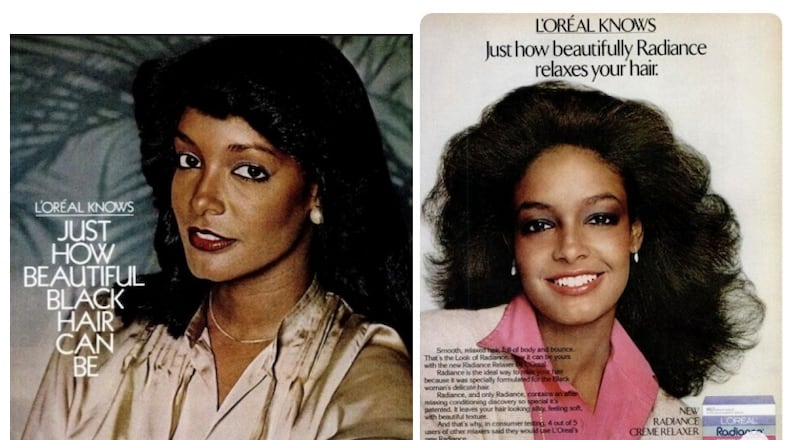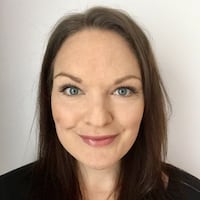The Georgia Supreme Court will determine how much time a person has to claim that prolonged use of hair relaxer products caused injuries, in a case set to influence hundreds of such cases pending statewide.
On Tuesday, the court agreed to review a Georgia woman’s product liability lawsuit against the makers of hair relaxer products she used for 19 years, including cosmetics giant L’Oréal. Kiara Burroughs claimed she developed uterine fibroids and associated health problems as a result of chemically relaxing her hair beginning at age 6 in 1995 and ending when she was 25 in 2014.
L’Oréal and the other manufacturers Burroughs sued asked a Chatham County judge to toss the case, claiming in part that it was filed too late. Burroughs filed her lawsuit in October 2022, the same month the National Institutes of Health published a report from the “Sister Study” finding that women who regularly used hair relaxers were more than twice as likely to develop uterine cancer as women who never did.
Under Georgia law, product liability claims generally can’t be filed after 10 years from the date of the “first sale for use or consumption of the personal property causing or otherwise bringing about the injury.” It is this language the state Supreme Court must interpret.
In June, the Georgia Court of Appeals agreed with the defendant companies that Burroughs’ claims were untimely. The state Supreme Court told parties in Burroughs’ case that it aims to determine when the clock starts ticking in a case such as hers, when an injury is allegedly caused by repeated use of a product over time.
The court’s decision is likely to set a precedent for hundreds of similar lawsuits pending statewide. More than 270 such cases have been filed in recent weeks, many in DeKalb and Chatham counties. That’s where some of the defendant companies, including Strength of Nature LLC and House of Cheatham LLC, are based.
Other Georgians are among the more than 9,000 plaintiffs whose cases against hair relaxer manufacturers have been consolidated in a federal court in Illinois. The first trial in the federal litigation is unlikely to occur until 2027, according to the parties’ latest status report.
Burroughs’ attorneys said in court filings that the timing issue presented in her case remains unclear under Georgia law.
“Although the product liability statute of repose has been on the books for some 46 years … its construction in chronic-exposure cases such as this one has, surprisingly, never been addressed by this court,” her attorneys said in their request for the state Supreme Court’s review. “Having begun using these products during childhood but developing symptoms from the chemicals in those products only decades later, Burroughs filed suit almost immediately upon discovering the likely link between the two.”
Chemical hair relaxers that straighten curly or frizzy hair have been around for more than a century, and from the earliest days they contained strong chemicals to break down the proteins that keep hair’s shape. Those included lye, and later formaldehyde and phthalates, which can also disrupt the hormones in the endocrine system.
Thousands of plaintiffs who repeatedly used hair relaxer products argue the companies that made and sold them knew or should have known about possible risks, but failed to warn consumers. Companies battling the claims deny this.
The health and well-being of customers is L’Oréal’s highest priority, the company said in a written statement. It said it doesn’t add formaldehyde to its products, and called for more research to determine whether cancer is caused by the chemicals used to relax hair or something else.
“Our products are subject to a rigorous scientific evaluation of their safety by experts who also ensure that we strictly follow all regulations in every market in which we operate,” L’Oréal said. “While we understand the desire of each plaintiff to find answers to and relief from their personal health concerns, we are confident in the safety of (L’Oréal company) SoftSheen-Carson’s products and believe the allegations made in these lawsuits have neither legal nor scientific merit.”
Research has sharpened the connection between the chemicals and health problems. While studies haven’t found that the health risks of hair relaxer products differ by race, they show the effects may be greater for Black women because they are more likely to use the products.
In the “Sister Study,” 89% of Black women reported using a chemical relaxer to straighten their hair at least once. Many said they used hair relaxer products regularly for decades, starting as children with mothers or grandmothers doing their hair at home.
Houston County resident Michelle Lowe shares that experience. In her lawsuit, filed in DeKalb County in February, she said she used hair relaxers continuously for 20 years, starting in 1994 when she was 6. She said she’d have relaxer chemicals applied at home and in salons every month or two.
Lowe said she had to have a hysterectomy in 2022 at age 33 after being diagnosed with endometrial cancer.
Diandra Debrosse, a lead plaintiff attorney in the federal litigation, called the products dangerous. Her firm, DiCello Levitt, has many Georgia clients in hair relaxer cases. Debrosse said the cases are “not just about holding manufacturers accountable, but also about empowering our communities and advocating for safer products for all.”
Burroughs’ case has been assigned to the state Supreme Court’s May 2025 oral argument calendar. It’s not clear when the court will issue its decision.
Keep Reading
The Latest
Featured


